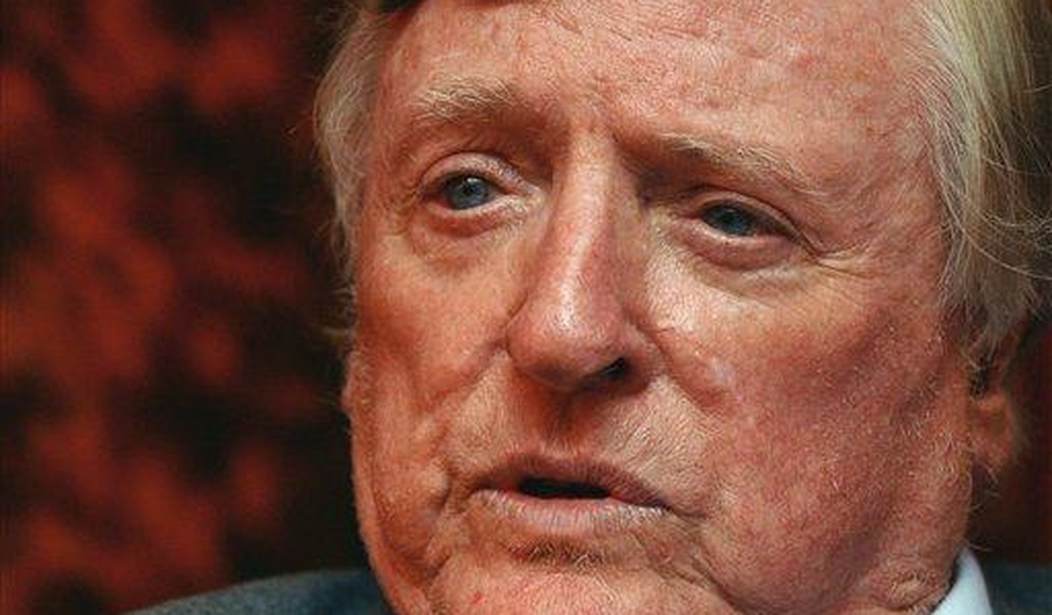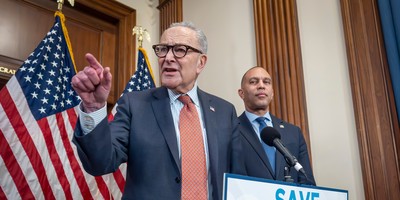Commencement season is upon us. And if I were giving one of the addresses this year, I'd begin with a quote from William F. Buckley Jr.: "We are basket cases of ingratitude, so many of us."
That's one of the National Review founder's most memorable quotes, as far as I'm concerned. In a 1988 speech, he said: "Our offense ... is that of the Westerner, rich or poor, learned or ignorant, who accepts without any thought the patrimony we all enjoy, those of us who live in the Free World."
Buckley himself was uber-talented, and yet he did not think that all of human history had been waiting for him to come on the scene. We all have dignity, gifts and purpose. But it's gratitude -- which requires humility -- that allows those qualities to be brought out and put in use.
"(T)o live without any sense of obligation to those who made possible lives as tolerable as ours ... without any sense of gratitude to our parents, who suffered to raise us; to our teachers, who labored to teach us; to the scientists, who prolonged the lives of our children when disease struck them down -- is spiritually atrophying."
WFB, as we fondly remember him at NR, further said: "We cannot repay in kind the gift of the Beatitudes, with their eternal, searing meaning: 'Blessed are the poor in spirit, for theirs is the kingdom of heaven.' But our ongoing failure to recognize that we owe a huge debt that can be requited only by gratitude ... our failure here marks us as the masses in revolt; in revolt against our benefactors, our civilization, against God himself."
Recommended
I repeat all of this from Buckley because we need to hear it. Carl R. Trueman more recently wrote about ingratitude as an "unnoticed pathology of our troubled era." In an essay in the Catholic magazine First Things, he reflects on his own gratitude for his parents, who were not able to go to college themselves, but worked so their children could. They loved one another and stayed together, and so his upbringing is considered "privileged" by some, something to apologize for. To do so, though, Trueman writes "would be to sin against my parents." Trueman concludes that ingratitude "has dehumanized us."
It's dehumanized our politics, too.
What do young people setting out into adulthood need to hear? I'd like to think it would be something like: You are blessed. You have no doubt struggled, and will do so again. But you have been given great gifts -- simply the opportunity for education is not a given in the world today. What you don't like in the world, on social media, in politics, you have the power to combat with the civic virtue of gratitude.
Yuval Levin from the American Enterprise Institute, reflecting on "Gratitude in an Angry Time," writes: "To be grateful is, in part, to know you have a lot to lose, and therefore also that you have a lot to offer the future, through acts of conservation and refinement, not just through acts of demolition."
G.K. Chesterton wrote that "The test of all happiness is gratitude." That's a message that young people, having lived through the jarring disruptions of COVID, could afford to hear. We live in a time of much noise and a divisive and destructive spirit. If we choose gratitude for the good in our lives -- and our country -- the injustices and the wounds can make us more compassionate toward the often-hidden pain of others.
We do our young people an injustice when we let them get a degree and don't tell them about the greater things in life. Graduating college is an achievement. But love is a greater one. And gratitude, which requires humility, is a sure path to the self-giving of love.
(Kathryn Jean Lopez is senior fellow at the National Review Institute, editor-at-large of National Review magazine and author of the new book "A Year With the Mystics: Visionary Wisdom for Daily Living." She is also chair of Cardinal Dolan's pro-life commission in New York, and is on the board of the University of Mary. She can be contacted at klopez@nationalreview.com.)

























Join the conversation as a VIP Member